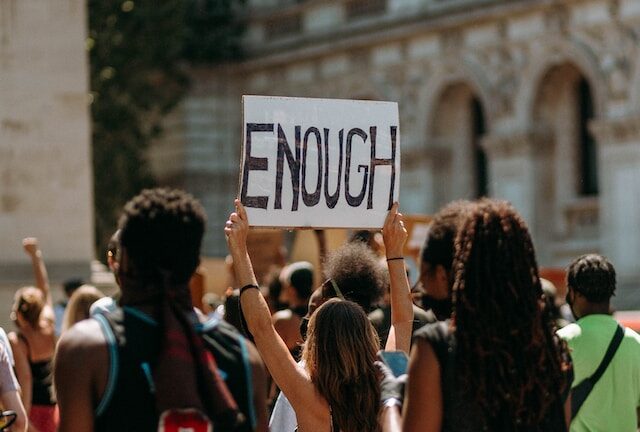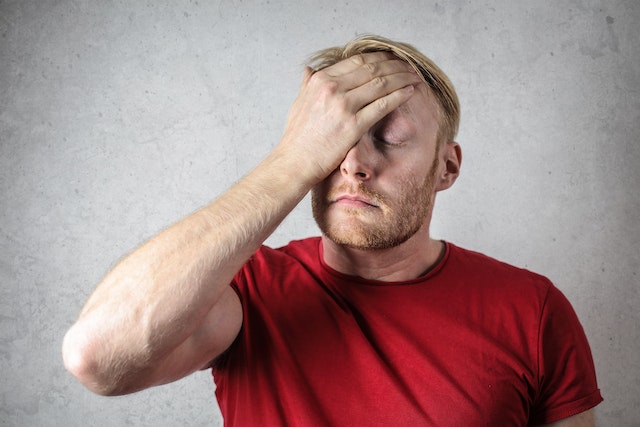Black people can experience stress and trauma from a variety of sources. From seeing police brutality fetishized in news media to divisive political rhetoric, racism can erode self-worth and cause anxiety symptoms. Finding coping mechanisms might help you feel better, even if dealing with racial trauma is not simple. Here are some methods to get going.
Talk to Others
The everyday racism that Black Americans encounter can cause racial trauma. As a therapist, I see how racial trauma is tied to mental health issues like anxiety. Over time, the dehumanization and oppression of African American people can lead to a deep distrust of authority figures like police officers and healthcare providers. Add to this the ongoing cases of police brutality, divisive political rhetoric, and poverty in Black communities, and you have a recipe for stress that often leads to anxiety, depression, and even heart disease.
One way to combat the effects of racial trauma is to talk to others about it. Dr. Jason Campbell, who is willing to have racially conscious conversations, supports your experiences. It can lessen feelings of loneliness and make you more likely to have better-coping mechanisms for handling racial microaggressions. It can also improve your sense of community by building closer ties to people facing similar struggles.
Embrace Your Ethnic Identity
Having a strong sense of cultural, racial, and ethnic identity can help protect against the harmful effects of racism. Embracing heritage and culture, taking pride in history, and educating yourself can help you steel yourself against the ignorance that spawns prejudice and discrimination. Rather than trying to disassociate from the things that are wrong with our world, it’s important to focus on those that are right. Counting your blessings, writing down moments of hope and gratitude, and reaching out to others working for change can all improve your outlook and boost your resilience. Also, forming stronger ties with people who share your experiences can make a big difference in how you cope with anxiety and racism. Find ways to get involved in your community, join cultural programs, and reach out to those who could use support (like kids needing mentorship). The more you embrace your identity, the less likely you are to be overwhelmed by the ills of racism.
Take Care of Your Mental Health
Whether you’ve experienced a blatantly racist attack or endured many micro-aggressions, the stress and anxiety of racism can have lasting negative impacts on your mental health. You may not have full control over your circumstances, but you can take steps to protect and enhance your mental well-being. For instance, social support and community involvement are key to good mental health. It’s also important to find a healthcare provider who is culturally competent and willing to discuss racial trauma and its impact on your mental wellness. Research shows that people who are more open about their experiences of racial injustice have healthier psychological functioning and lower rates of depression and anxiety than those who keep their feelings to themselves. It is especially true for Black Americans who often fear mental health stigma and encounter clinicians who fail to recognize the impact of racial trauma on mental health. Anxiety might be reduced by sharing your experiences with a reliable friend.
Exercise
Having a similar role model who has accomplished what you want may be tremendously inspiring. If they have a story about how they dealt with racism or racial trauma, that can help them feel less alone in this struggle. One study found that the frequency of gendered racial microaggressions significantly predicted anxiety symptoms in Black women. However, the study also found that engaging in physical activity mitigated this link. Therapists can use this information in their work with African American clients. They can provide psychoeducation about gendered racial microaggressions and collaborate with their clients to incorporate exercise into daily routines to mitigate the effects of these occurrences.
Additionally, therapists can work with their clients to develop emotion regulation and relaxation strategies. It includes limiting their social media usage to decrease exposure to negative images and messaging that may trigger racial stress responses. Future research should continue to explore conditions under which exercise might buffer the relationship between gendered racial microaggressions, anxiety and ruminations.



